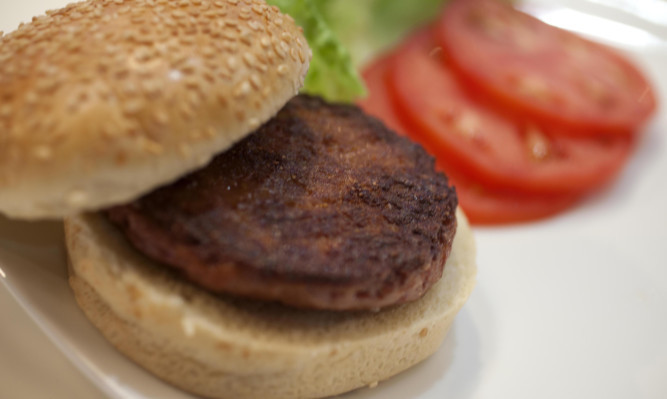The world’s first test-tube burger, made from lab-grown meat, was cooked and served in London.
The 5oz (142g) patty, which cost £250,000 to produce, was dished up before an invited audience.
Scientist-turned-chef Professor Mark Post produced the burger from 20,000 tiny strips of meat grown from cow stem cells.
After trying his own creation for the first time today, he said: “I think it’s a very good start, it proved that we can do this, that we can make it and to provide a start to build upon – I am very pleased with it.”
Chicago author Josh Schonwald and Austrian food researcher Hanni Rutzler gave the meat’s taste a mixed review after becoming the first to try it.
After taking a bite, Ms Rutzler said there was “intense taste” but that she had expected a softer texture.
“It’s close to meat, it’s not that juicy, but the consistence is perfect,” she said.
“The absence is the fat, it’s a leanness to it, but the bite feels like a conventional hamburger,” Mr Schonwald said.
“This is kind of an unnatural experience in that I can’t tell you over the past 20 years how many times I have had a burger without ketchup or onions or jalapenos or bacon.”
Prof Post believes the new burger could herald a food revolution, with artificial meat products appearing in supermarkets in as little as 10 years.
It has received the financial backing of Google founder Sergey Brin, who reportedly put some £215,000 of his vast fortune towards the project.
